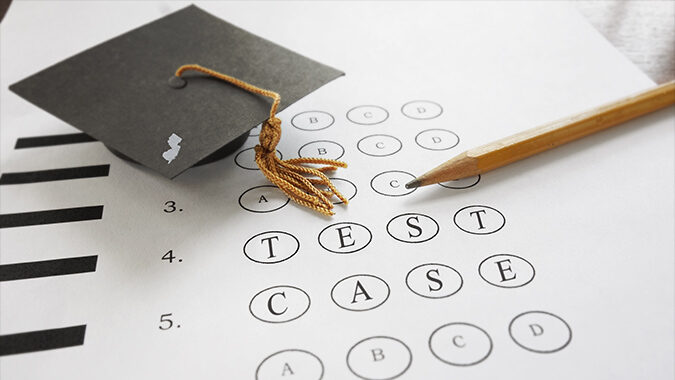A bill permanently eliminating the requirement for students to pass a standardized test to get their high school diploma was up for discussion last week.
Despite a considerable show of support for bill A-4639, NJBIA Vice President of Government Affairs Althea D. Ford said the state should not be reducing its higher standards, transparency and accountability within its successful education system.
“From the business community’s perspective, it is fantastic that New Jersey invests so much in our K-12 education system,” Ford told the Assembly Education Committee. “And it is wonderful that our state’s public schools are consistently ranked among the highest in the nation.
“But to accompany this investment and demonstrated quality, it is entirely appropriate and necessary for good education policy to promote data transparency, accountability, and higher standards within our successful education system. Our high school graduation test is an important component of that accountability and standards.”
New Jersey typically requires students pass a standardized test in 11th grade in order to graduate.
Due to the COVID-19 pandemic and its aftereffects, however, that testing requirement has been waived the last three years – including this year.
Bill sponsor Ralph Caputo (D-28) said during testimony on Feb. 9 that there is “no way” the test should be back on the books for 2024 “because we still haven’t resolved the issues that our students have gone through in 2021, 2022 and 2023.”
Ford, however, countered that not having a state test on a permanent basis would make it “easier for schools to inadvertently allow certain student populations to slip through the cracks.
“State testing allows school districts to better diagnose and target any deficiencies, and it allows parents and school communities to hold schools accountable for such,” she said. “This data is even more critical after the COVID-19 learning loss, as we need to assess the impact that the pandemic had on our schools and children."
“Any weakening of our testing policy could weaken the accountability and quality within our K-12 education system.”
Some parents supported the bill on the premise that their children were good students but had anxiety in taking tests.
Ford acknowledged to the committee that there could obviously be good test-takers who make terrible employees and bad test-takers who make excellent employees.
However, she added, a removal of the state testing requirements could reduce standards of New Jersey’s workforce overall.
“The current system and its tests set a statewide minimum standard for all schools while still allowing the portfolio option for some students to demonstrate proficiency,” Ford said. “Any weakening of our high school testing policy could lead to lower standards for what it means to graduate high school.
“That could ultimately diminish our workforce quality, which is currently one of the strengths of our business climate in New Jersey. With everything else going on with our unprecedented workforce situation and all the other hurdles New Jersey businesses face, do we want to jeopardize this strength?”




